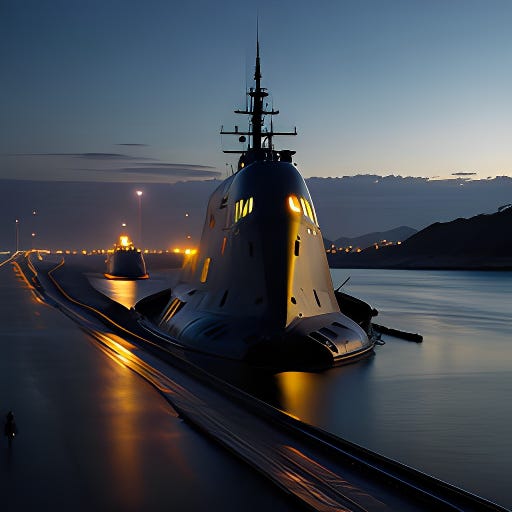Navigating the Paradox: Pursuing Diplomacy Amidst Military Expansion in U.S. and North Korea Relations
The Delicate Dance of Denuclearization: Striking a Balance Between Dialogue and Defense on the Korean Peninsula
The Washington Declaration, a significant document outlining the U.S.-ROK alliance, has sparked debate surrounding its seemingly contradictory objectives. While the paper advocates for dialogue and diplomacy to denuclearize North Korea, it simultaneously focuses on expanding military capabilities and deterrence strategies. This paradoxical approach has raised concerns about the viability of diplomatic efforts with the Democratic People's Republic of Korea (DPRK).
The declaration's emphasis on strengthening the mutual defense relationship between the U.S. and ROK under the Mutual Defense Treaty suggests prioritizing military expansion over diplomatic endeavors. By focusing on combined defense postures, the document inadvertently communicates a message of military readiness, potentially dissuading DPRK from engaging in meaningful dialogue.
Establishing the Nuclear Consultative Group (NCG) and enhancing U.S. strategic assets’ visibility on the Korean Peninsula reinforce the alliance's commitment to nuclear deterrence. These actions may fuel an arms race instead of fostering diplomatic dialogue, complicating efforts to engage with North Korea.
President Biden's assertion that a nuclear attack by the DPRK against the ROK would be met with a "swift, overwhelming, and decisive response" sends a conflicting message. While intended as a deterrent, this rhetoric implies aggression and could undermine prospects for peaceful dialogue with North Korea.
Biden's decision to send nuclear-armed submarines to be ported in South Korea for the first time in 40 years will contribute to an aggressive environment on the Korean Peninsula akin to inching a fuel tank closer to a campfire. This perception will hinder diplomatic dialogue with North Korea.
While the declaration's emphasis on the ROK's commitment to the Nuclear Nonproliferation Treaty and the U.S.-ROK Agreement for Cooperation Concerning Peaceful Uses of Nuclear Energy showcases the alliance's dedication to nuclear nonproliferation, it will be seen as a double standard by the DPRK. This is due to the simultaneous enhancement of nuclear deterrence capabilities within the U.S.-ROK alliance.
Given these contradictions, the U.S. and ROK must reevaluate their approach and prioritize diplomatic efforts over military expansion to foster an environment conducive to dialogue and denuclearization. The Washington Declaration's paradoxical nature risks undermining peaceful diplomacy with North Korea, necessitating a more coherent and consistent strategy that balances military preparedness with genuine diplomatic outreach.
Established humanitarian and religious organizations are essential to facilitate genuine diplomatic outreach with North Korea. These organizations have historically maintained a presence in the country and built trust with the local population, even during heightened tensions. By leveraging their unique relationships and understanding of North Korean society, they can serve as neutral intermediaries and help bridge the gap between the U.S.-ROK alliance and the DPRK. Additionally, these organizations can support confidence-building measures and cultural exchanges, which can pave the way for more formal diplomatic discussions. By involving these humanitarian and religious organizations in diplomatic efforts, the U.S. and ROK can demonstrate their commitment to a peaceful and collaborative approach, fostering an environment more conducive to achieving long-term stability and freedom on the Korean Peninsula.
Your support helps grow this platform to bring awareness to the issues and needs on the Korean Peninsula that affect the world because keeping peace in the East means maintaining stability in the West. Let’s keep the peace!

